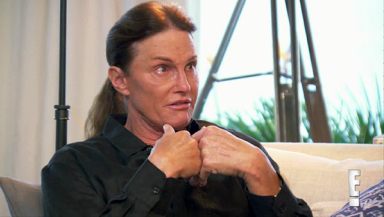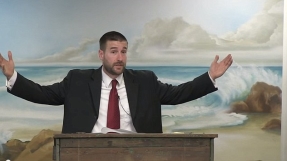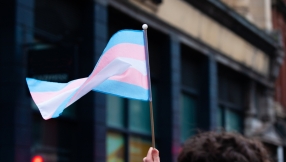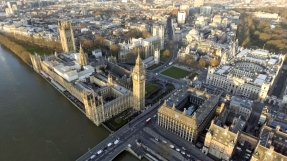
"Bruce Jenner says he's a woman and no-one bats an eye," the meme's top line read. "Rachael Dolezal says she's African-American and everyone loses their minds."
It was posted by the usually funny, very occasionally reactionary Catholic Memes Facebook page, and judging by the comments section, it was not meant primarily as a defence of Rachael Dolezal – the woman who was 'outed' late last week for 'identifying as black' when her ancestry is overwhelmingly white.
Clearly not a cry for tolerance, the meme was saying that a being trans-gendered makes as much sense as a white woman calling herself black. And many conservative evangelicals may agree with the sentiment. More extreme right-wingers may even see the internet firestorm that erupted around Dolezal, a racial justice activist on behalf of the African American community, as a victory against 'liberal fascism' or some other such paranoid nonsense.
It's not. But it poses a problem for the progressive movement generally, that of how those on the Left can go forward without the movement devouring itself from the inside in a frenzy of hypersensitivity and outrage. More than that, it should serve as a wake-up call to Christians. Not, as some might argue, that we should fight all the harder against shifting understandings of gender and identity, but how archaic even the questions we are asking about these subjects make us look – and the damage that is doing to our witness. Dolezal has been roundly attacked by the Left and derided by the Right. It seems silly, amusing even, that a white woman would identify as black. I mean, she's pretty obviously white. As are her conservative Christian parents. It's kinda funny. And yet a lot of people aren't laughing. It is disrespectful, some ethnically black activists have said, to 'colonise' black identity like a tourist, without paying the dues and walking the path of oppression and marginalisation of those born black. And there is definite merit in that position.
But what if we applied that logic to other forms of identity? And this is where Caitlyn Jenner comes in. Some find her emergence as an heroic symbol of LGBT (with the emphasis on 'T') rights unfortunate, but symbol of heroism she has become, as people have flocked to affirm her right to identify as a woman, regardless of what gender she was born into. Often, the people affirming Jenner were the same ones attacking Dolezal.
It would be easy to assume, from a conservative evangelical perspective, that none of this is relevant. That liberal in-fighting is either irrelevant or a good thing for the Church. It isn't. Conservative attitudes to these questions of identity have had a major impact on the direction progressive discourse has taken, and that discourse is likely to have a major impact on us.
So, let's consider the two high-profile identity cases. Both Dolezal and Jenner feel that they are essentially different from the bodies they were born into, and have made less than total changes to those bodies in order to express that feeling. Yet only one has enjoyed the widespread (though, it must be said, not total) support of the progressive Left. Why?
A simple explanation is that Jenner is far from a pioneer in this – in fact, the only reason we know about her trans decision is because she is part of that awful television dynasty, the Kardashians. Jenner is following the hard-won path of countless trans women before her and enjoys freedom, respect and social support because a community of campaigners and activists worked for decades to change society's view. And while the experience of transgendered people in 2015 is still far from acceptable in terms of the abuse and prejudice they suffer, a community exists and ordinary progressives broadly support it.
Dolezal is alone. Either she is the first high profile trans-racial woman, or she is a lone aberration. There are no groups defending her. In fact, the group she has dedicated her life to defending and serving is pretty angry with her. This may be because it's a new concept to us, or it could be because what she has done reminds us uncomfortably of 'blackface' – which is unacceptable even when being done out of ignorance rather than racism, because of the horrific racism of the past that it evokes.
But more than that it is because progressives have failed to think or talk through our understanding of identity and its place in society. Progressives tend to see multiculturalism as one big liberal dream with the simple goals of equality and respect, when, in fact, multiculturalism is a reaction against liberalism and respect and equality can often be at odds (this short explanation of identity and multiculturalism by one of the UK's top political theory textbook writers should give you a taste of how complicated this area is). Really, there are massive differences about, well, difference. Should we ignore it in the name of equality, or celebrate it in the name of identity?
Christians, judging by our debates, are completely ignorant of these questions, on both the progressive and conservative sides of the Church. Meanwhile, progressives, both secular and Christian, understand better, but their views seem to be decided more by social pressures to prove themselves truly progressive than any substantive consideration of the arguments. This leads an entire community of people who believe in LGBT rights and the fight against racism or sexism to spend their time fighting each other rather than sexists, racists, homophobes and the structures in society that keep these people marginalised. Feminists rejecting the idea that trans women can be feminists and in turn being labelled 'trans-excluding' is just one example of the insane level of in-fighting among Progressives.
So what? You're thinking, yes? Why should we care? Let 'em fight each other!
Why should Christians, particularly conservative Christians with little in common with the progressive agenda, care about these fights? And this is where that wake-up call I mentioned comes in.
The fact is, on social issues, those affecting most identity politics, the progressives have won already. They've won in America. Whether you like them or not, whether you agree with them or not, they have. They will continue to. We should care because this is where the battles of the future will be fought. We should care so we can move on from trying to fight ancient battles in museums when there are real fights ahead.
Already among in the real world most of the questions the Church is struggling with have been irrelevant for years. Here's how society thinks about these things:
Should we be loving and accepting of gay people? Obviously. Should gay people be allowed to marry? Yes, of course. Should we treat trans people as if they are weird? No. Don't be stupid.
The children in your youth group now will not struggle with these questions in the future, because they are growing up in a world that makes these debates look like debates in the 60s about whether people of different races could share buses. What these young people (and the adults they become) might struggle with is articulating what the difference between race, gender and sexuality might be. What rights each group should have and who should win in the case of a conflict. Does Jesus have something to say about that?
Real debates about whether equality and tolerance might be enough without apportioning exclusive rights to some groups and not others are being drowned out by the noise of conservative Christians shouting about arguments that are already over and the unified backlash from progressives of all stripes. And those who the 'enemy' (that conservative Christianity has made itself) has spoken (or shouted) out against most get an unfair advantage in the debate.
By refusing to accept equality, conservative Christians have helped push progressivism away from liberalism (which would have granted us more freedoms) and into the arms of an identity politics that demands our respect and affirmation and gets more aggressive with every dumb stunt a Christian group pulls. Conservatives made a fundamental, though easy-to-understand strategic error in this. Failing to understand that tolerance and support for equality is not the same thing as affirmation of a particular identity (something the LGBT and other identity politics movements understand very well), conservatives have fought the wrong battle. They could, early on, have tolerated those whose identities they disagreed with by granting them equal rights (without affirming their moral choices or the identities), now that choice is gone. Equality and tolerance are no longer the demand. Identity politics demands respect and affirmation ‒ particularly tricky to grant if you disagree fundamentally with the view of certain identities.
Essentially, the Church, through either its ignorance and refusal to engage with the real questions or its refusal to tolerate those who it disagreed with, has not just failed to make things better. It has made things worse.
We, conservative AND progressive Christians, need to stop playing around, stop drinking the comforting milk of easy old arguments, year after year. We need to be brave and to move onto the solid food of bigger ideas and strategic positioning. Never compromising what we believe to be the eternal truth, but realising that much of our society neither cares what we consider to be truth nor needs to for us to be true to our calling.
If we don't, our future is irrelevance at best and a choice between total exclusion from society or persecution at worst. That might sound appealing to some conservatives, but they need to think carefully about welcoming that. Sure, it feels dramatic and heroic to face persecution for standing up for truth. But think of the broader consequences for the Kingdom. A Church that is seen by society as utterly alien and archaic might pat itself on the back for its bravery, but the price of that smugness is a world whose chances of hearing the Good News of Jesus Christ from Christians not preaching relativism are dramatically reduced. And I don't see how anyone calling themselves a conservative, an evangelical or a fundamentalist could think of that as anything but an apocalyptic disaster.
Jonathan Langley is a freelance writer and works for a Christian mission and development agency.















